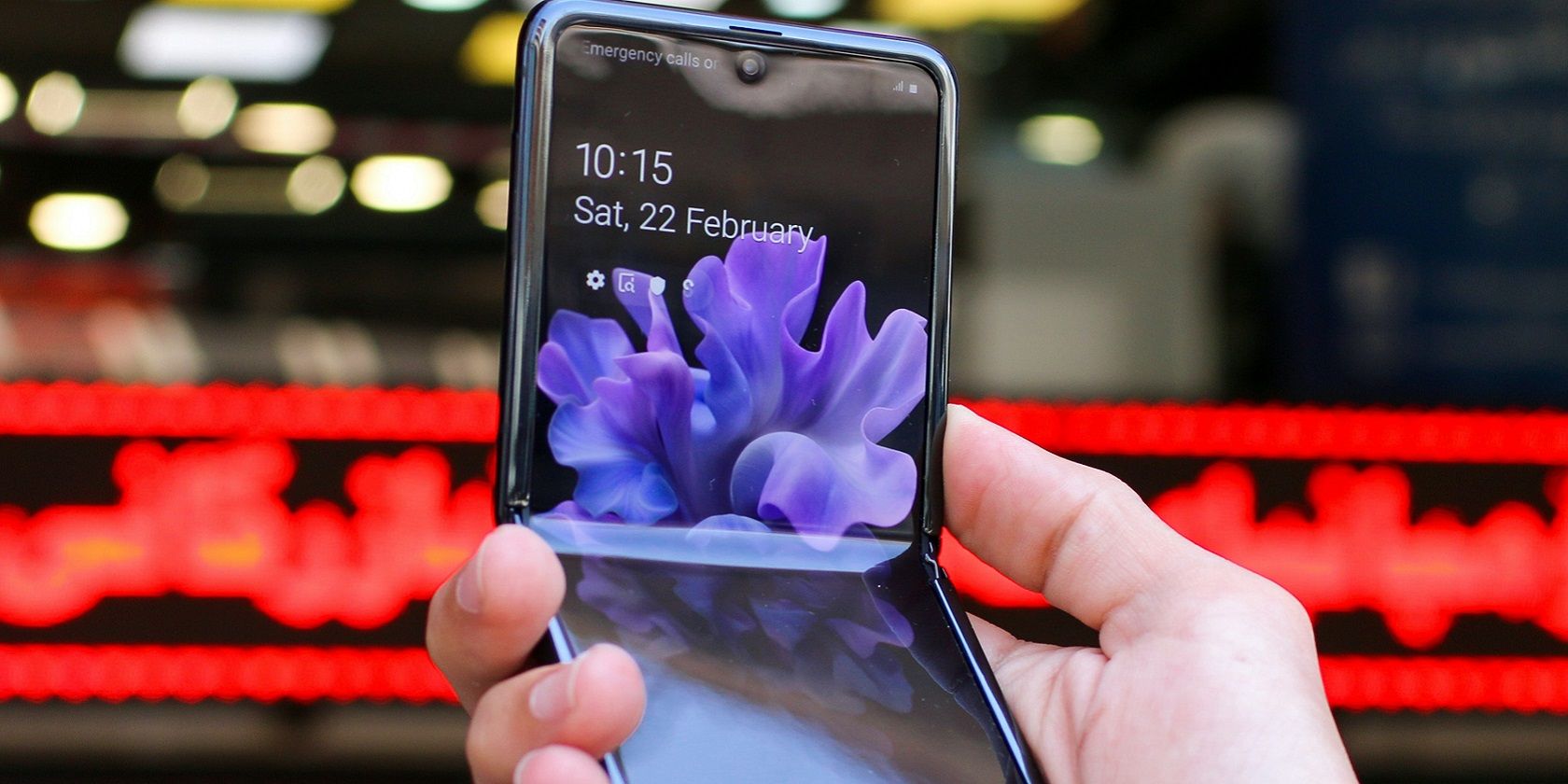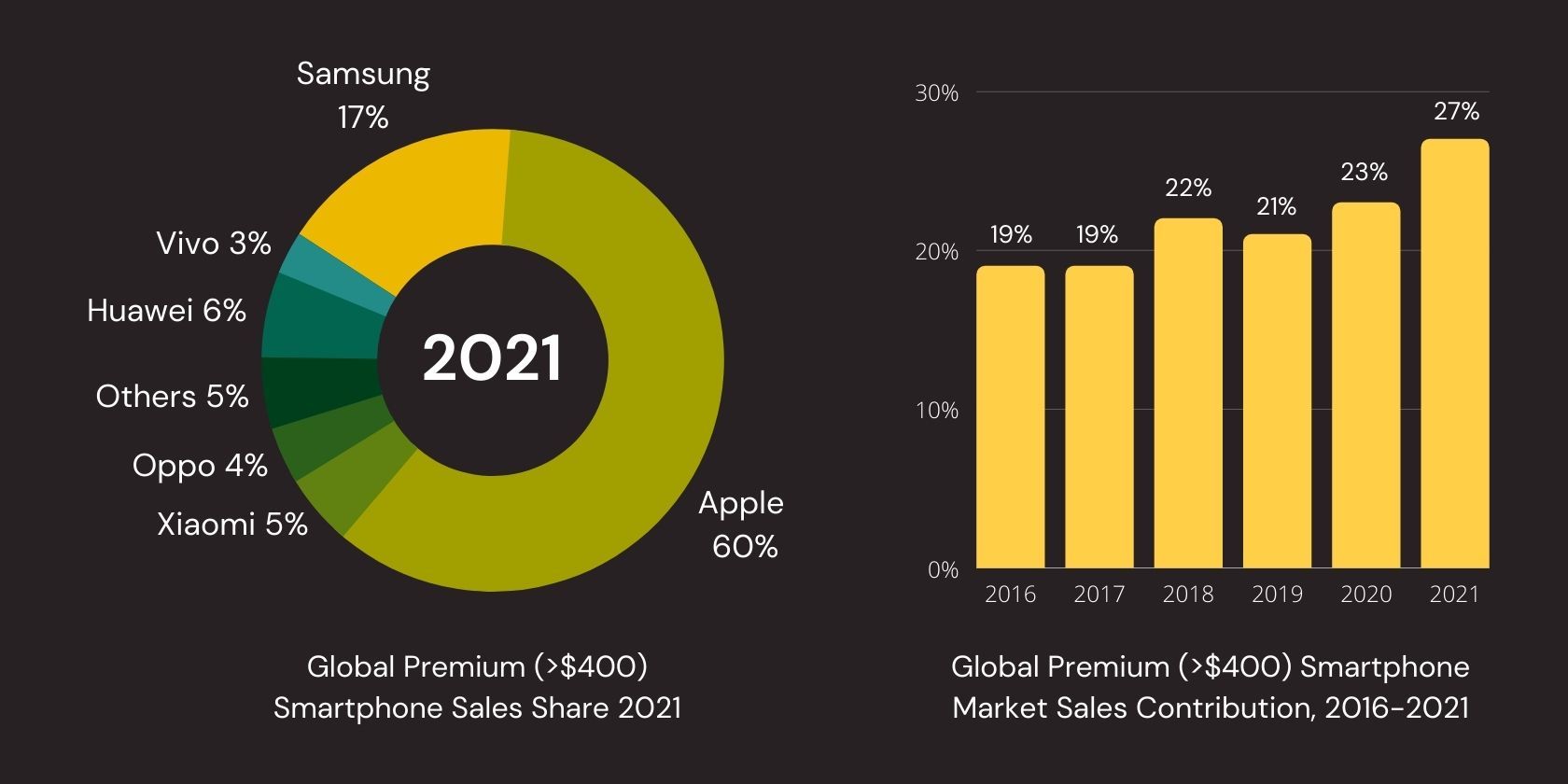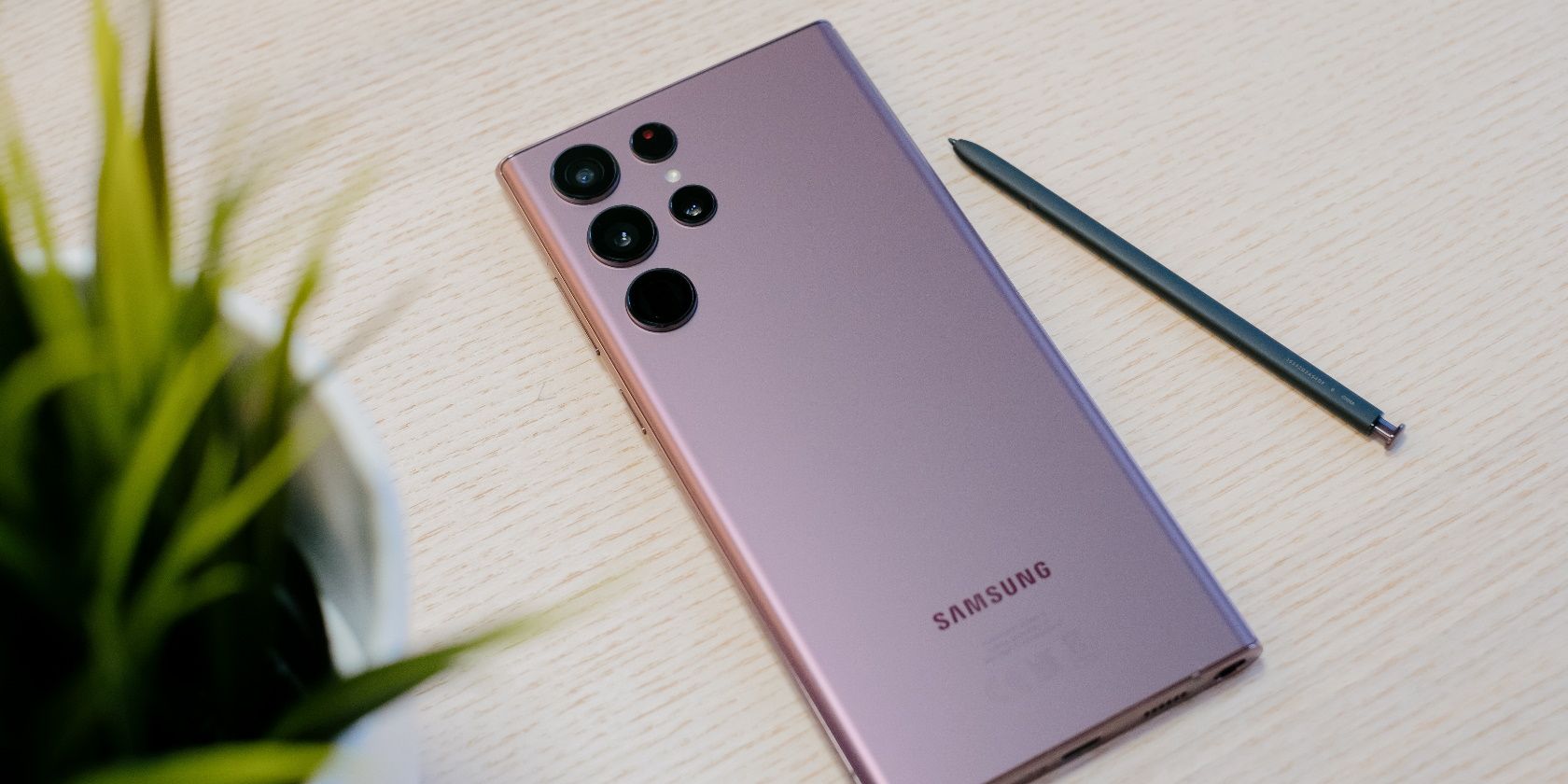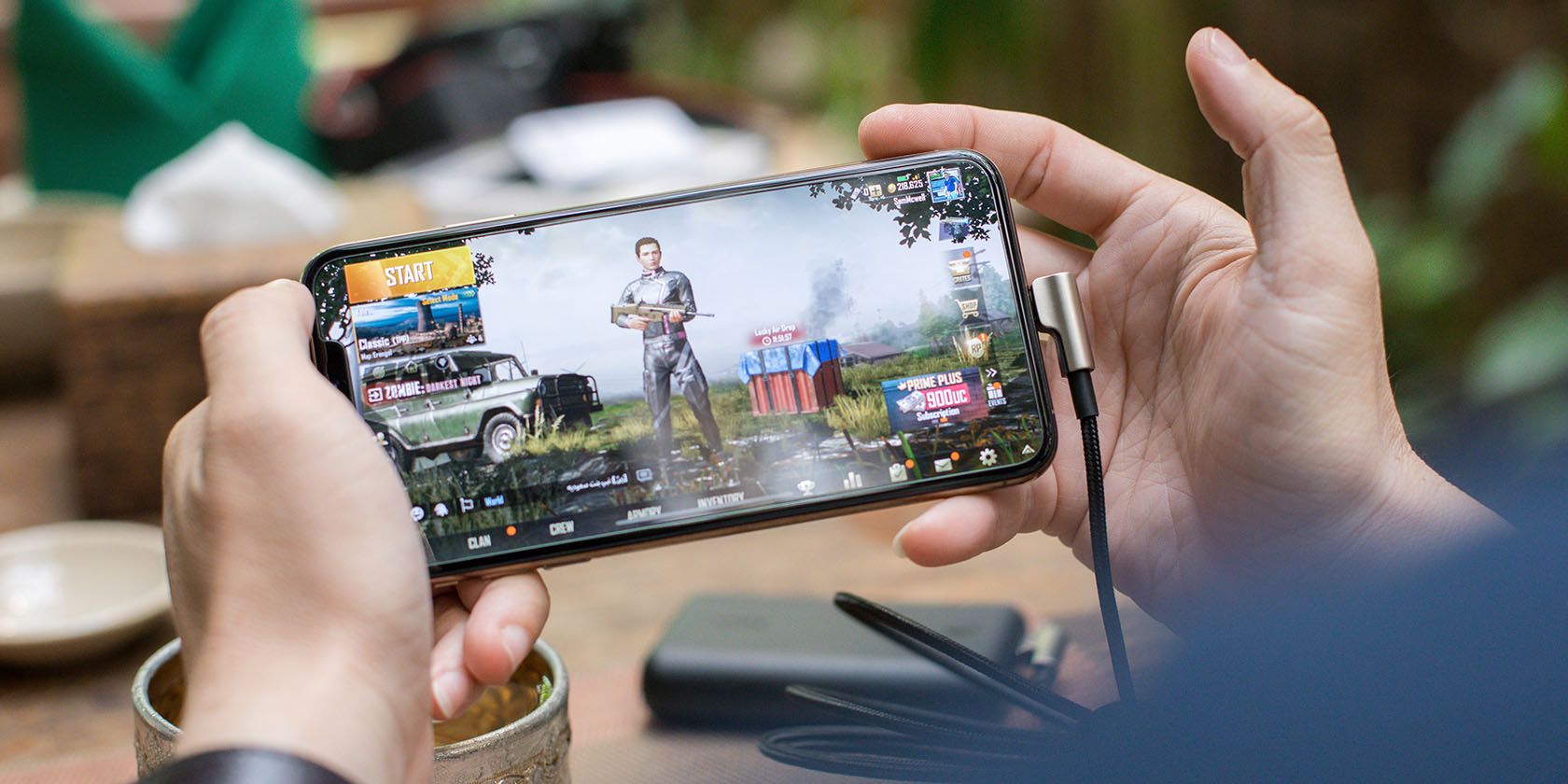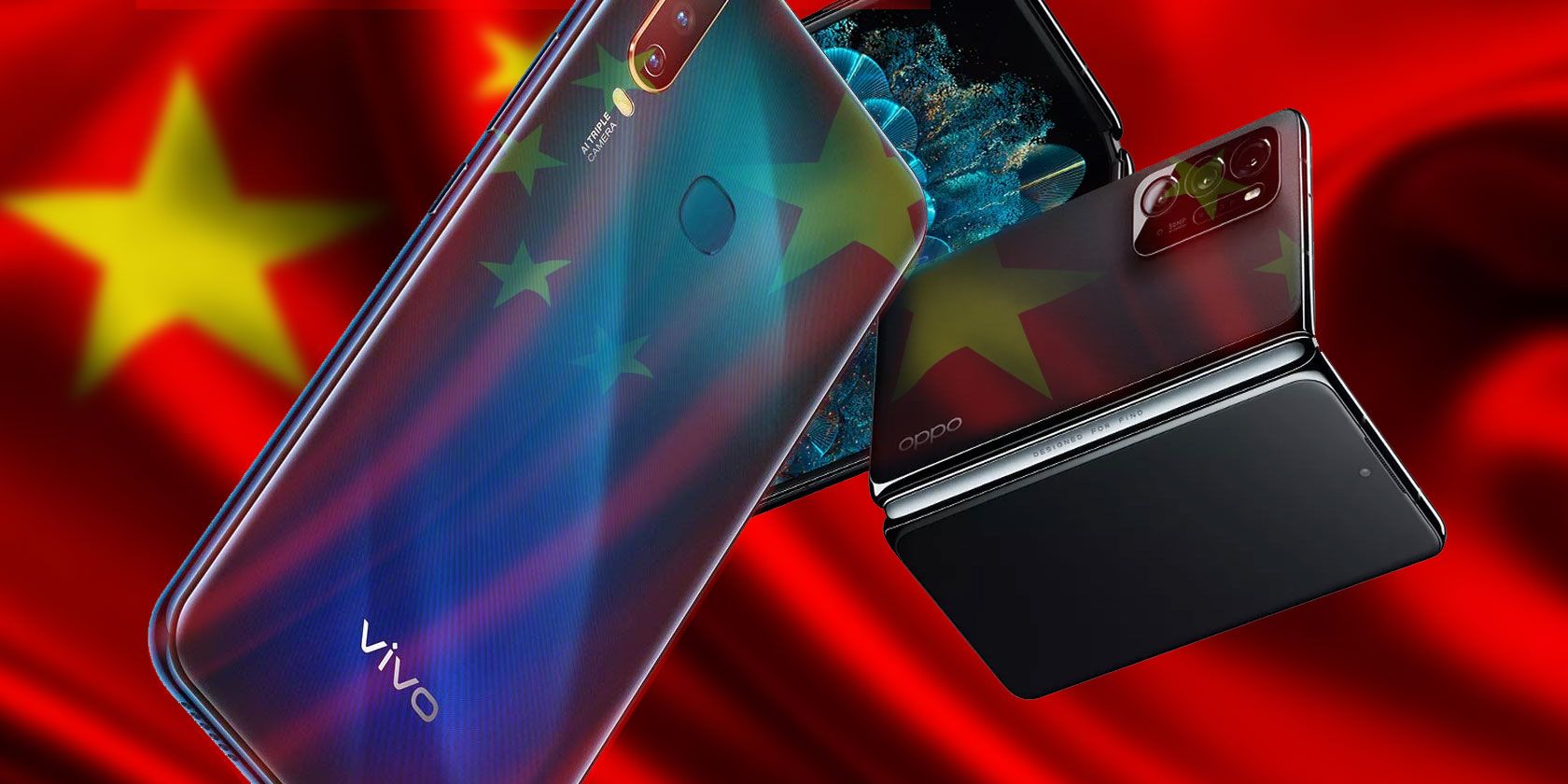Smartphones come at various price points. From budget phones to flagships, there's something for everyone. Yet despite budget phones becoming so much more capable in the last few years, reports show that more people today are open to buying premium phones than ever before,
Why is that? And are premium phones really a better deal?
Premium Phone Sales Are on the Rise
Before we delve into the reasons why more people are buying premium phones, let's take a look at some supporting statistics to get a better perspective. Note that by premium phones, we mean phones over $400.
In the image above representing research from Counterpoint, we can see that more than a quarter of all smartphone sales in 2021 amounted to premium smartphones. Given the increasing sales contribution of premium phones from 2016 to 2021, it's safe to assume that this trend may continue onwards into 2022 and beyond.
Unsurprisingly, a majority of the premium smartphone market share is secured by Apple. In 2021, the tech giant held a whopping 60% of that market share, and we're guessing Apple's recent success in China had a big part to play in this victory. Following Apple on the graph is Samsung at 17%, Huawei at 6%, then Xiaomi, Oppo, Vivo, and the rest.
Now that you have some context, let's move on to see the reasons why buyers today might be more willing to buy premium phones as opposed to budget or mid-range phones.
1. Premium Phones Are More Economical in the Long Run
Granted, premium phones are expensive and not suitable for everyone. But there are ways they can prove to be more economical than cheaper phones. The three main reasons why people upgrade their phone are that the battery has degraded, the software support has ended, or they simply want new features.
Knowing this, premium phones can prove to be a better deal for you under three conditions:
- You are willing to carry your phone for more than three years.
- You don't care much about having the latest software update.
- You can get the battery replaced once it degrades.
Think of it like this: let's say you buy a pair of cheap headphones every year or so. Even though the headphones are new, you'll still get bad sound quality every time because the components inside them are simply inferior. But if you switch to high-end headphones, you can just buy a pair once and enjoy great sound quality for several years.
Similar is the case for smartphones. If you buy a budget phone every two to three years, you get average performance, cameras, and build quality every time. But if you buy a premium phone, you can enjoy its premium hardware and software for longer, assuming that you're okay with the three conditions we mentioned above.
Replacement batteries cost anywhere from $25 to $100, so you're actually saving money in the long run by not buying new phones.
2. Mobile Gaming Is Expected to See Explosive Growth
Mobile gaming has a bad reputation in the gaming industry and among gamers. After all, most mobile games feel like they are designed to help you pass time, not engage you in immersive stories or gameplay. Think Candy Crush or Subway Surfers. It's one of the biggest reasons why mobile gaming still sucks compared to console/PC gaming.
Fortunately, this is changing for the better. Experts believe that mobile gaming is on track to see explosive growth in the coming years. After all, there are way more smartphones in the world than there are consoles and PCs. Mobile games allow developers to appeal to a larger audience which can help generate greater revenue via microtransactions.
Also, since phones are becoming more powerful and 5G is becoming more accessible each year, graphics and multiplayer experience will improve too. All this will translate to developers making better mobile games, and to play those games (which will probably be free to download), buyers will be more likely to buy premium phones with better performance.
3. There's More Choice
We've commented before on how Chinese phones are so cheap and that Chinese brands have quite a reputation for making some of the best budget phones out there. And while that remains their bread and butter, it seems more Chinese companies have started to prioritize flagships.
As we saw in the graph, Xiaomi, Vivo, and Oppo now offer competitive flagships positioned right alongside Samsung's counterparts with impressive specs, great build quality, and a very deliberate "cool factor."
Chinese brands are not as prevalent in the US (except OnePlus), but they have a strong grasp of the Asian market. So, they can potentially downplay their budget phones and prioritize marketing their flagships to increase sales for the latter.
4. Buyers Are More Informed
Buyers today are unlike those of the last decade, in that they are more aware, informed, and vocal about their needs. Since there are more options than ever before, they have the freedom to be pickier.
And with the rise of new content creators and tech publications, buyers can easily watch videos or read articles to compare two or more phones of their liking and make a better buying decision.
All this isn't surprising. As society becomes more technologically advanced and we become more reliant on smart gadgets for daily activities, people will naturally be more willing to spend more on said gadgets, not just smartphones. Yes, cheap phones have become really good, but there are some features that are exclusive to premium phones.
Premium Phones Are Gaining Popularity
Most smartphone sales consist of budget and mid-range phones since most of what an average buyer needs can easily be found in that price range. However, due to the above reasons and more, buyers worldwide are becoming more willing to spend extra to get that affordable premium or "flagship killer" experience that the tech industry seems to be obsessed with lately.

